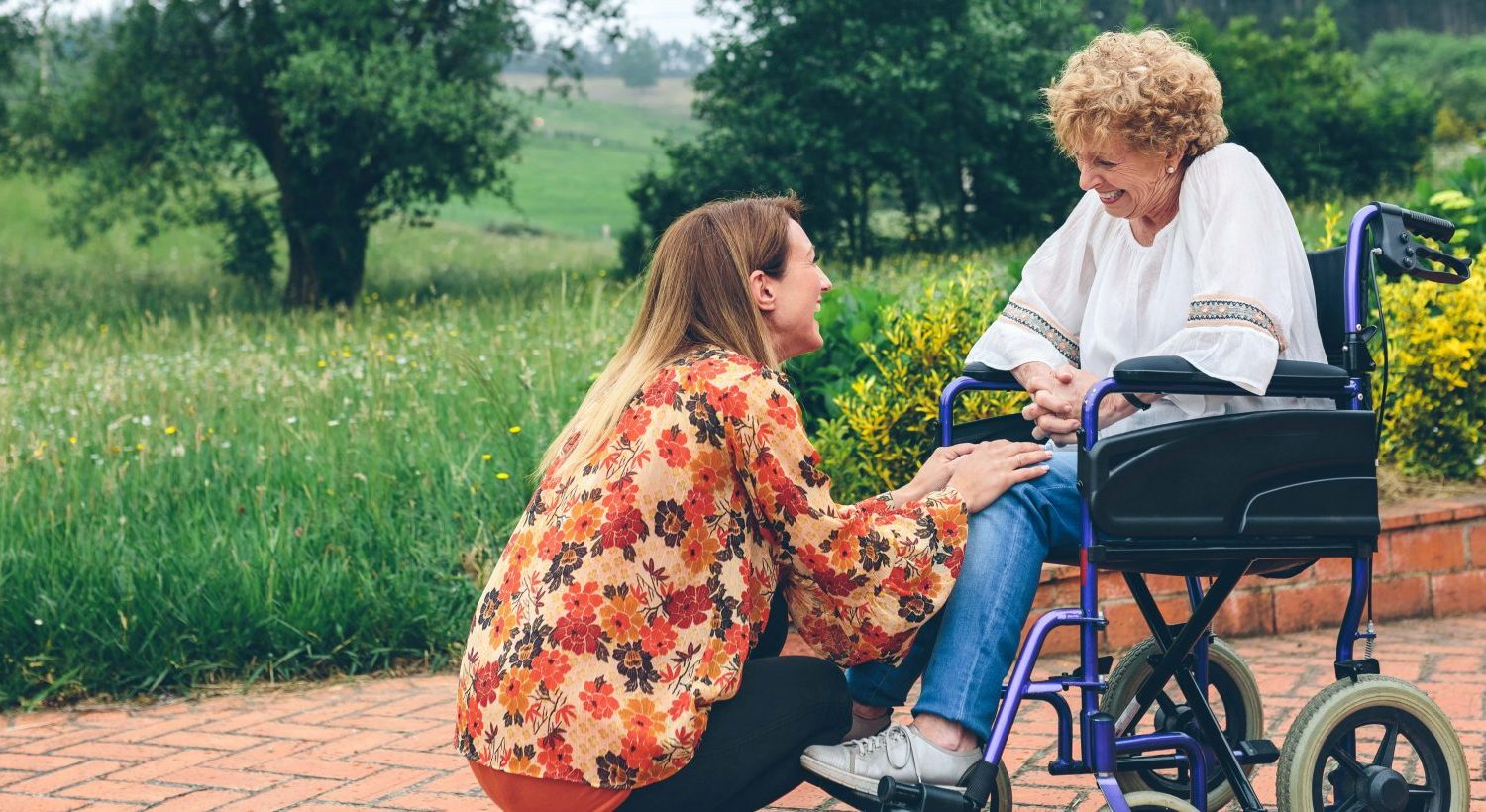The key to a better life with dementia. Guest blog by Dr. Lizzy Boots
What if we hold the key to a better life with dementia, but we don’t use it?
It is my belief that we need to focus on increasing the self-confidence of our healthcare professionals to make all the difference for people with dementia and their loved ones.
But first a little backstory explaining how I got to this point.
We read it everywhere: One in five people gets dementia over the course of their lives and even one in every three women. At my home we are with three women now as I have daughter of two and a half years old and a newborn daughter of three months, so statistics like that certainly get to me. We cannot cure dementia yet, but we can ensure the best possible life for everyone who lives with dementia.
How can we do that? We need to not only look at the person with dementia, but also at his or her environment. Dementia is something you don’t experience by yourself. I involves the whole family, with informal carers like spouses or other family members often providing most of the care needed. But unfortunately too many informal carers are overburdened and we have been seeing this more than ever during the COVID-19 pandemic.
Fortunately, there are many great interventions to support these important people remotely, and these are now beginning to demonstrate clearly that they can deliver what they promise in terms of supporting informal carers.
One example is the online Partner in Balance course that I developed together with informal carers and professionals. Partner in Balance increases self-confidence for informal carers as they experience more control in what they have to do. This has a positive effect on their quality of life [1]. and this impact is now being picked up abroad, because Partner in Balance is now even being rolled out in the UK [2].
Good news. But what do we see, only 3% (!) of effective support options such as Partner in Balance are used in practice [3].
Surely we cannot accept that we have fantastic opportunities to support our informal caregivers, but that they do not end up with the people they are intended for? How do you make sure that the right care ends up with the right person. That is is my personal mission.
In recent years I have worked hard on this mission by raising awareness through lectures and a YouTube series, working together with municipalities on dementia-friendly societies, organising fundraisers, all the while talking to many caregivers and professionals about the key to cracking this code. In doing all this I have learned that there are three aspects that are crucial to ensuring that the right care reaches the right person:
1. Develop care together with the people for whom it is intended
2. Support the care providers in their new task
3. Allow care to adapt to the changing needs throughout the process
For Partner in Balance, the first and last aspects are met; the course has been developed with the target audience in mind and it meets their changing needs. But still, care providers seem a little uncertain about using it.
Why is that? An inventory among already trained Partner in Balance coaches shows that there are a number of barriers that they encounter:
- They do not have confidence in their online knowledge and skills and therefore do not offer it to clients
- They lack confidence in being able to use a new approach in practice (the self-management principle)
- Knowledge “fades away”. They are enthusiastic about the training, but when you get back to their daily routine, the new knowledge disappears along with it the trust that they can use it effectively.
I would really like to overcome these barriers so that Partner in Balance can be used by all professionals and becomes is accessible to all informal carers.
Recently I was nominated for the Young Outstanding Researcher Award from Alzheimer Nederland, a talent prize (€100.000) for the most promising young researcher in the field of dementia. This amazing prize takes me one step closer to making this dream come true. I can now commit myself to increasing the self-confidence of professionals by, e.g. expanding the coach training, setting up intervention opportunities, sending newsletters and holding webinars and building a coach community for coaches to support each other.
In addition to increasing the self-confidence of healthcare professionals, I also aim to further expand the Partner in Balance content so that it adapts to the new phases and new challenges caregivers face throughout the process.
My mission is a future in which informal carers in all circumstances and throughout the entire care process receive the key to the right support at the right time by well-trained professionals. I am convinced that I can make a difference in the quality of life of people with dementia and their carers, for this generation, but also for the next.
Thank you so much for your support! You can follow my journey via LinkedIn: https://www.linkedin.com/in/lizzy-boots-67790437/
For more information about the Young Outstanding Researcher Award, visit: https://www.alzheimer-nederland.nl/talentprijs
References
1. Boots LM, de Vugt ME, Kempen GI, Verhey FR. Effectiveness of a Blended Care Self-Management Program for Caregivers of People With Early-Stage Dementia (Partner in Balance): Randomized Controlled Trial. J Med Internet Res. 2018;20(7):e10017.
2. UEA, Anglia UoE. £2 MILLION PROJECT TO SUPPORT UK DEMENTIA CARERS2020. Available from: https://www.uea.ac.uk/news/-/article/2-million-project-to-support-uk-dementia-carers.
3. Gitlin LN, Marx K, Stanley IH, Hodgson N. Translating Evidence-Based Dementia Caregiving Interventions into Practice: State-of-the-Science and Next Steps. Gerontologist. 2015;55(2):210-26.

